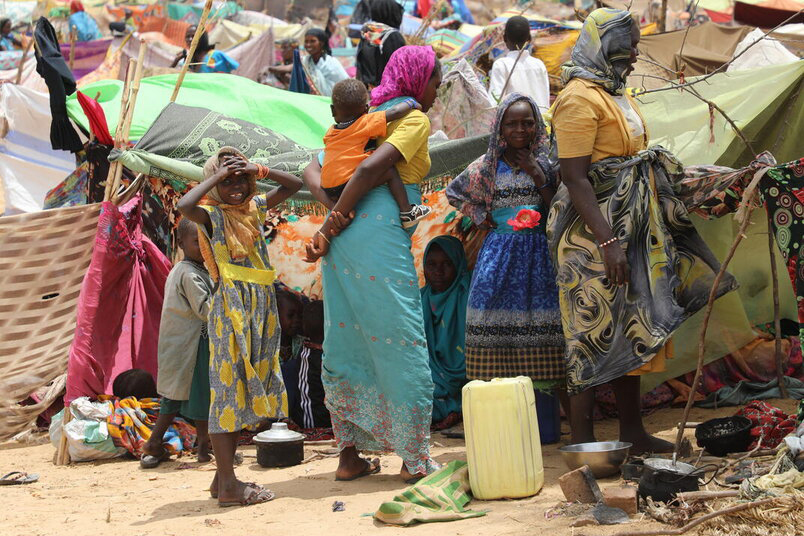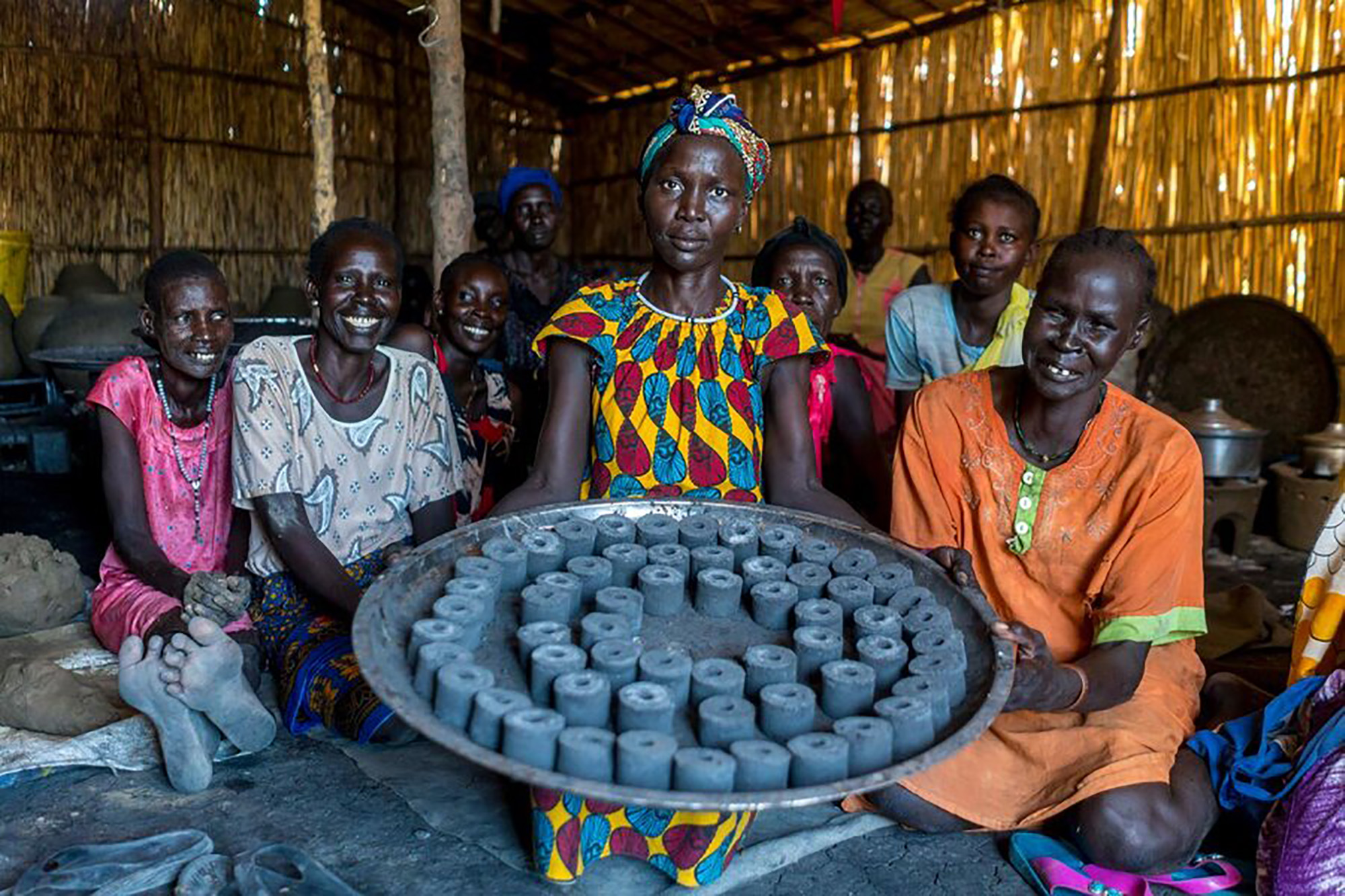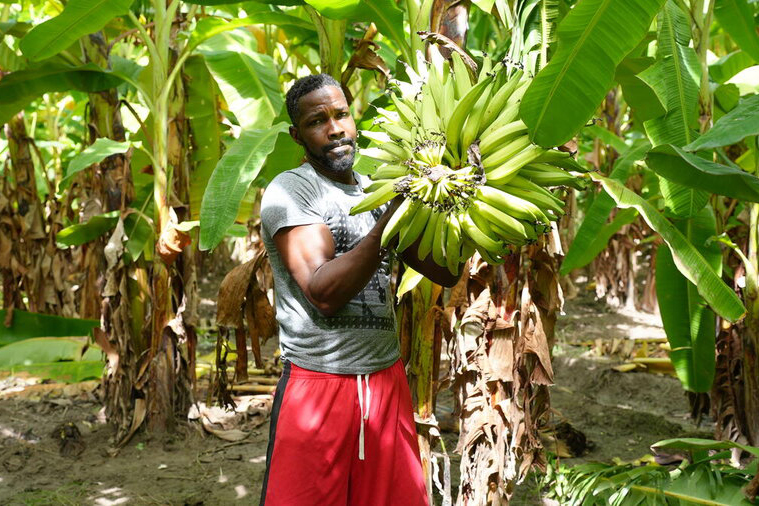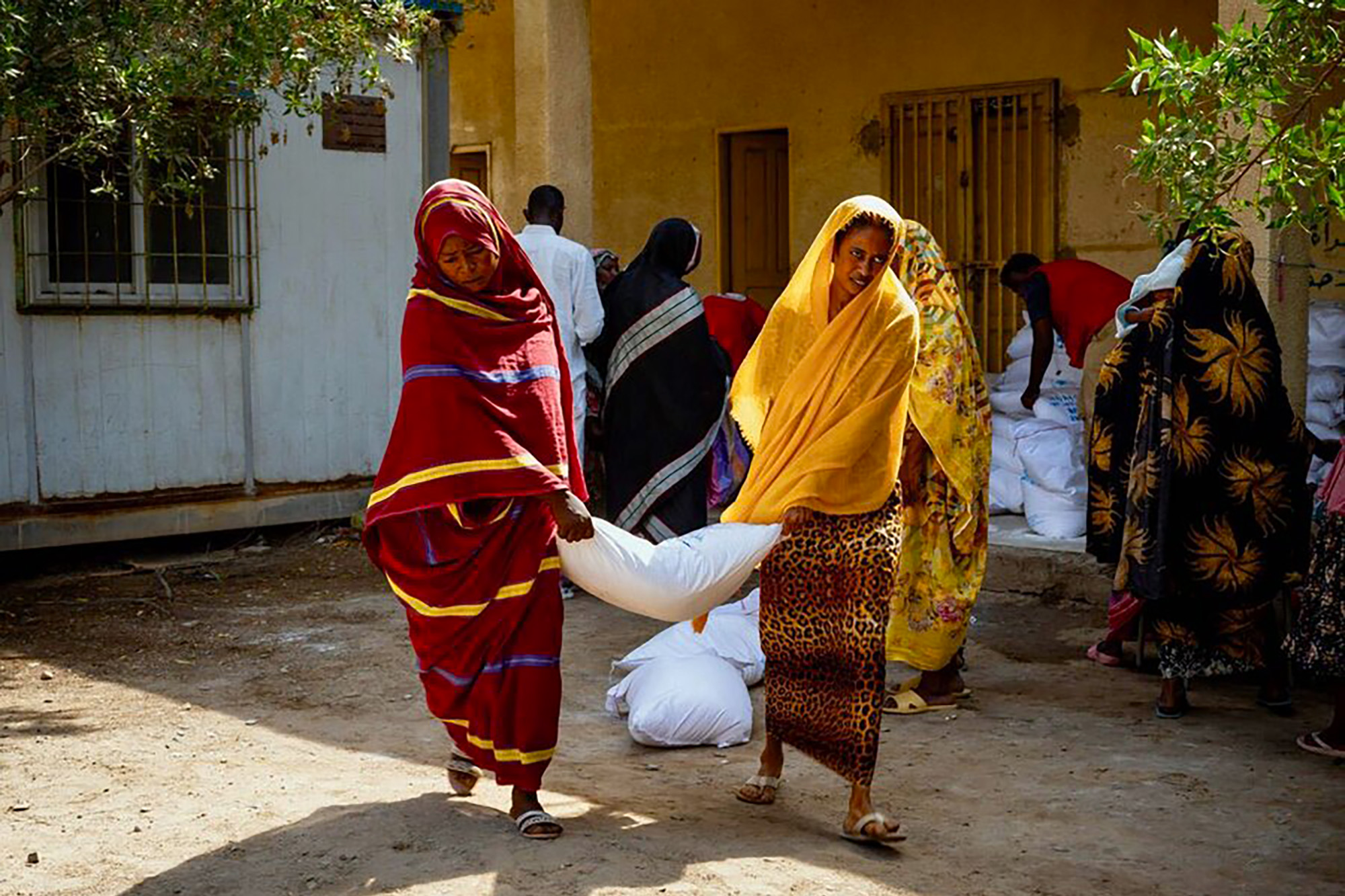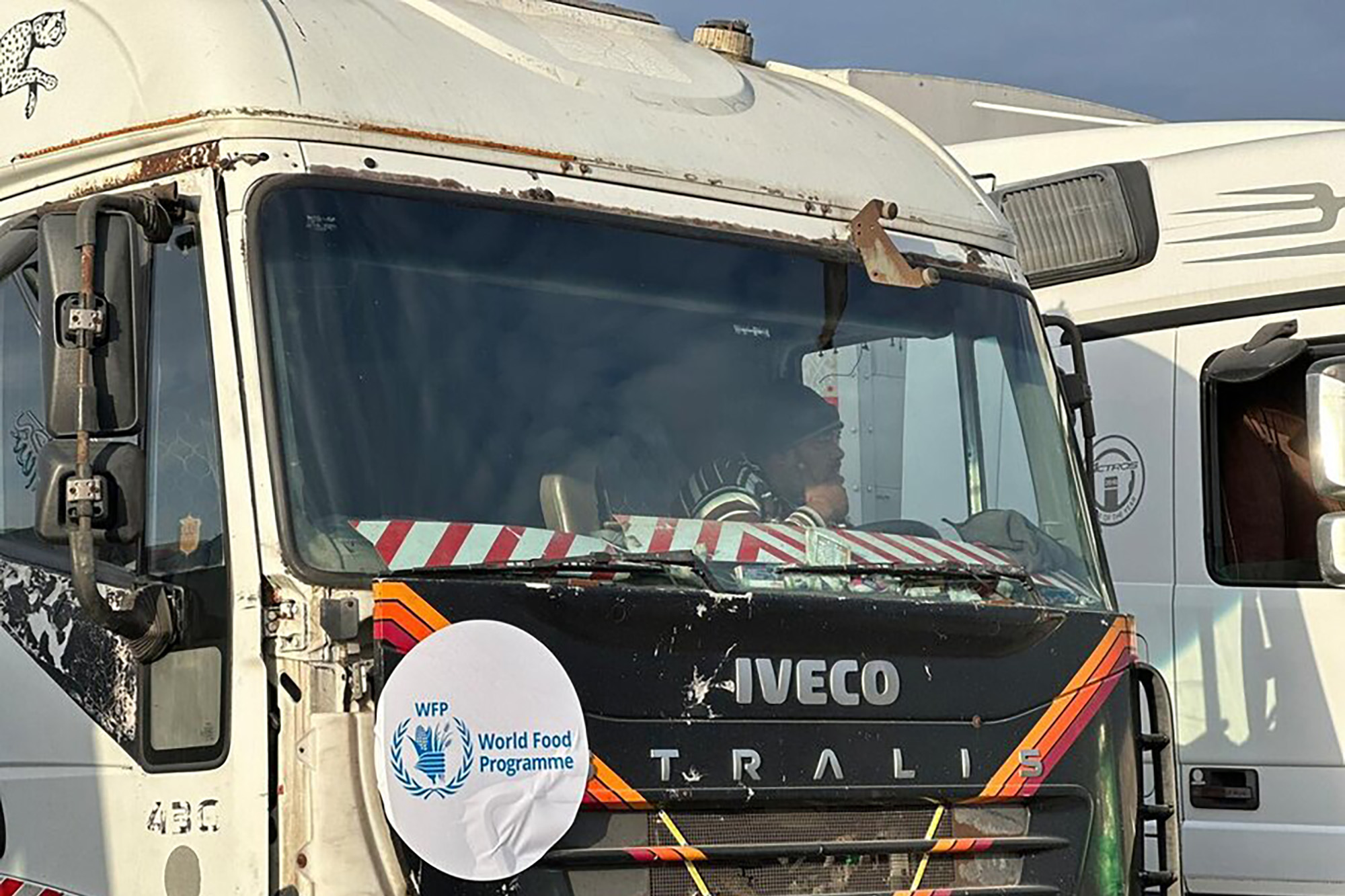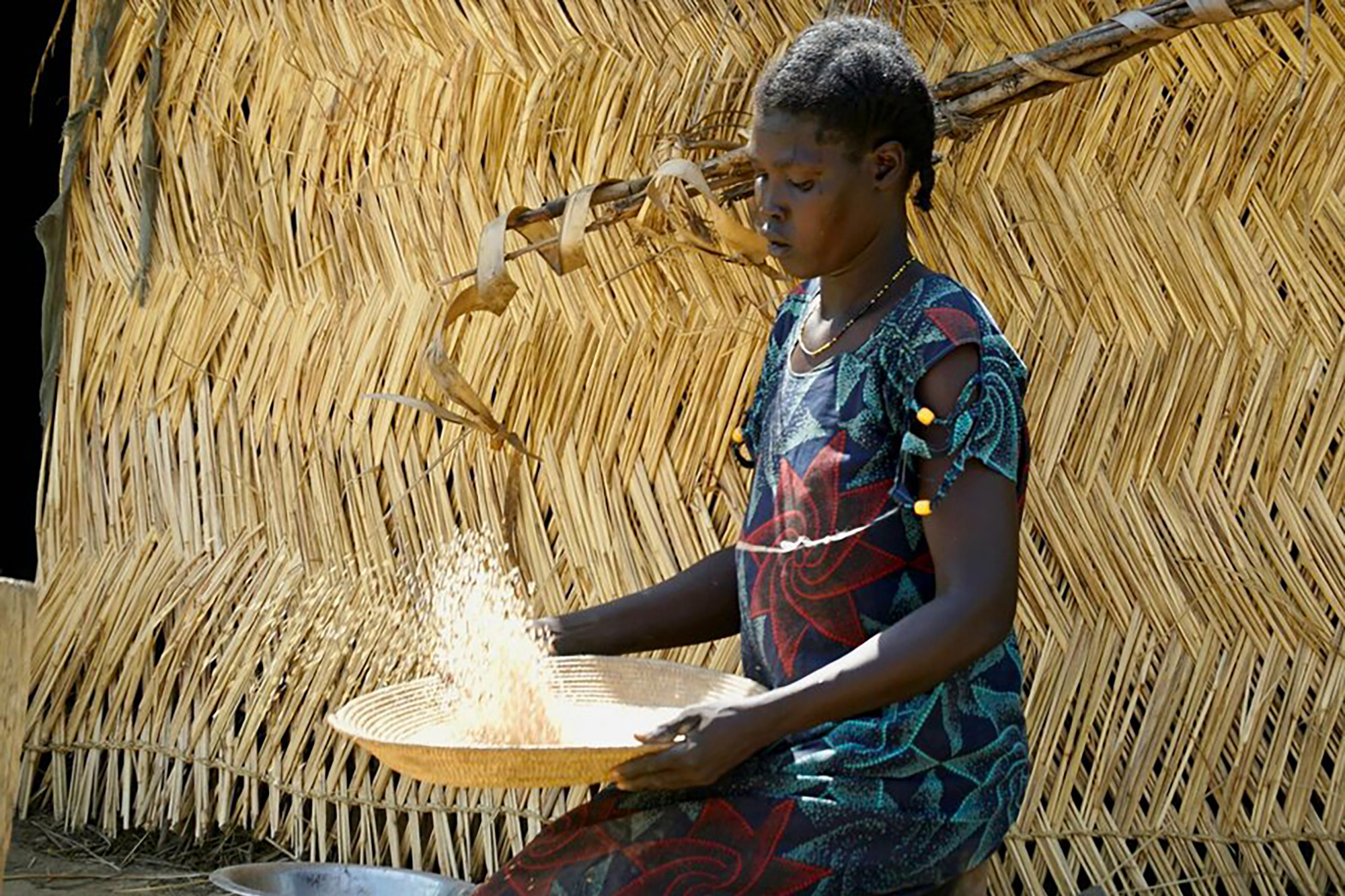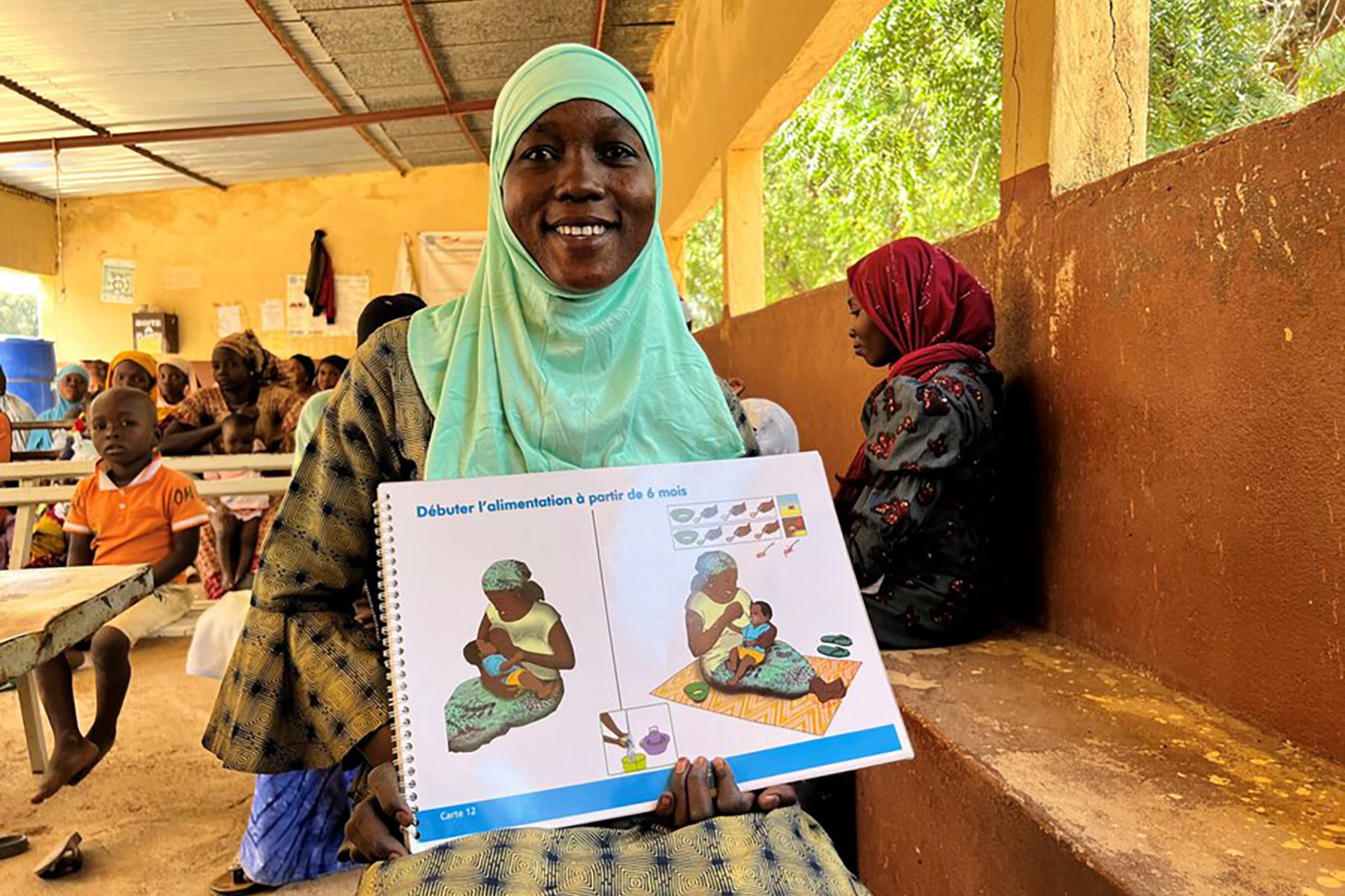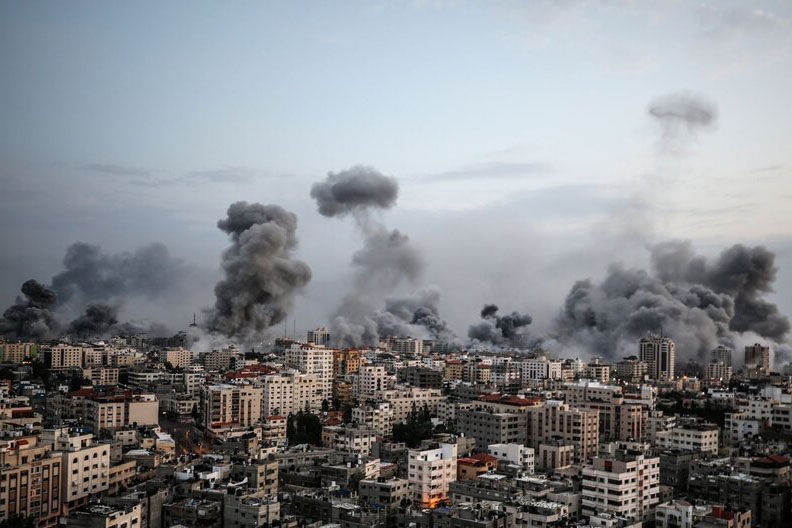Sudan's ongoing war has led to widespread displacement, hunger, and a yearning for peace and normalcy among its affected population.
WFP
In Rubkona, South Sudan, Nyagara Maluit shows off charcoal briquettes made out of carbonized water hyacinths - an invasive species that disrupts waterways and aquatic food systems, exacerbating flooding. Turning them into sustainable fuel helps reduce deforestation. Over 70% of the world's food-insecure people are in areas where water is scarce. Climate change is worsening water-related hazards and land degradation, leading to social, gender and education inequality. The World Food Programme (WFP) responds to water-related disasters and provides emergency food and cash assistance around the world while also building resilience in communities by restoring ecosystems to improve long-term water availability and food access.
Farmers in Haiti's Artibonite department, face dire challenges due to armed bandits plundering crops, underscoring the urgent need for security and stability to ensure food security and long-term resilience in the country's agricultural sector.
While rising costs, climate, conflict, and war all continue to impact global food insecurity, WFP remains committed to the UN Sustainable Development Goals: specifically, SDG Goal 2: Zero Hunger.
The World Food Programme highlights women's vital role in climate resilience amidst heightened vulnerability and underrepresentation in decision-making.
WFP shares firsthand accounts from refugees, aid workers, and experts on the ground about the challenges and the critical assistance being provided due to the ongoing conflict in Sudan.

WFP: Food distribution paused in Gaza
Food distribution has been halted in the North of Gaza due to heightened safety and security risks to both the delivery personnel and recipients.
Awad Adam and his wife Nafisa have been on the move since war broke out in Sudan last April. Today, they are among more than 10 million people uprooted from their homes in the world's largest displacement crisis. The World Food Programme (WFP) is working with other humanitarian agencies to respond to the escalating needs. Over the past year, WFP’s assistance has reached some 6.5 million people inside Sudan, as well as many others who have fled to neighboring countries. But needs are skyrocketing. Nationwide, nearly 18 million people face extreme food insecurity. Those trapped in conflict zones face the highest levels of hunger. Reaching them is becoming almost impossible due to security threats, roadblocks and other challenges. Without unfettered access, WFP warns of a looming hunger catastrophe.
The World Food Programme's (WFP) supply chain is facing bottlenecks at the Rafah crossing in Egypt, which is hindering its efforts to assist in Gaza. The border checks on the Gaza side have created bottlenecks, causing truck drivers to wait for days on end. Only two border crossings into Gaza are open, both on the Egyptian side. The needs in Gaza are enormous, and the entire population is acutely food insecure. Over half a million people face the most extreme stage of hunger. Suzanne Fenton, head of communications for WFP's supply chain division, tells us about her experience of being part of a convoy of trucks trying to deliver food to the Gaza Strip.
The Democratic Republic of Congo, along with Afghanistan, Yemen, and Syria, is among the countries that face the biggest emergencies when it comes to food according to the World Food Programme (WFP). Decades of conflict and climate change have reduced people's access to basic foods, leading to unprecedented levels of hunger. Despite the growing humanitarian needs and the global funding crisis that the WFP is trying to manage, the tragic situation in the eastern part of DRC still receives very little attention. As the African Cup of Nations attracts all the attention, it's important to reflect on what could be possible for the children of DRC, and more broadly, the children across the Continent.
In northern South Sudan, farmer Nyandeng Noon Agany and her six children have been benefiting from a rice-growing scheme supported by the World Food Programme (WFP), which has allowed them to eat three meals a day and sell the leftover rice for income. Sorghum has traditionally been the staple food in the region, but climate change, particularly flooding, has made cultivating it difficult, pushing families towards hunger and despair. South Sudan is among the five most climate-vulnerable countries, with decreasing rainfall and flooding decimating livelihoods. The country's climate crisis has deepened its ongoing hunger crisis, with 56% of its population experiencing extreme hunger. Through its rice-growing scheme, WFP is supporting communities in improving food security, restoring livelihoods, strengthening resilience to shocks, and building self-reliance.
“Our job is to give hope and help by giving food to those who really need it most. And that's what we do.”
World Food Programme (WFP) Executive Director Cindy McCain has many pressing reasons to lie awake at night. As Head of WFP, it is her job to make sure the millions of vulnerable people around the world who are relying on UN food assistance – from Gaza to Sudan to Afghanistan – don’t starve. In this episode, recorded four weeks into the war in Gaza, Cindy McCain reflects on finding hope in desperate situations, and raising her voice for the world’s forgotten millions.
Hunger is still one of the biggest – and most solvable – problems globally, causing 783 million people around the world to go to bed on an empty stomach every night.
“[Donation gaps mean] I'm taking food from hungry people and giving it to starving people. That's a heck of a decision to have to make.”
Photo: ©WFP/JulianCiviero
In the village of Dotembougou in central Mali, Atoumata Nimaga, a mother of three, is now a local volunteer leader who teaches other village women about healthy eating. Not so long ago, Atoumata faced hunger so severe that it threatened her unborn child. With the help of the World Food Programme, she was able to receive nutritious rations during her pregnancy. She is now part of a joint programme that helps families offset the negative effects of climate shocks and humanitarian disasters. The programme aims to put more than 38,000 women at the center of the development process, giving them the knowledge and tools to address the challenges many face.
In the past year, the World Food Programme (WFP) has suffered the worst funding shortfalls in its 60-year history: we raised just US$7.5 billion of our projected costs of US$23.5 billion. This has resulted in colossal reductions in the number of people we serve. With 333 million people facing acute hunger, we were forced to cut rations outright for millions of people in countries such as Syria, the Democratic Republic of the Congo, Haiti and Yemen, pushing families deeper into hunger. The tragic irony is that many of the places where WFP operates should not only be thriving, but producing food for people in other countries. At the beginning of 2023, Matthew Hollingworth, WFP's Country Director for Ukraine, summed it up neatly: “We’re delivering food assistance in one of the most fertile countries in the world. It’s perverse." Read details on these cuts here
Hind Khoudary, bears witness to the suffering befalling Gaza and how she and others are surviving. Seven weeks of relentless bombardment has left 1.8 million people displaced and acutely hungry.

